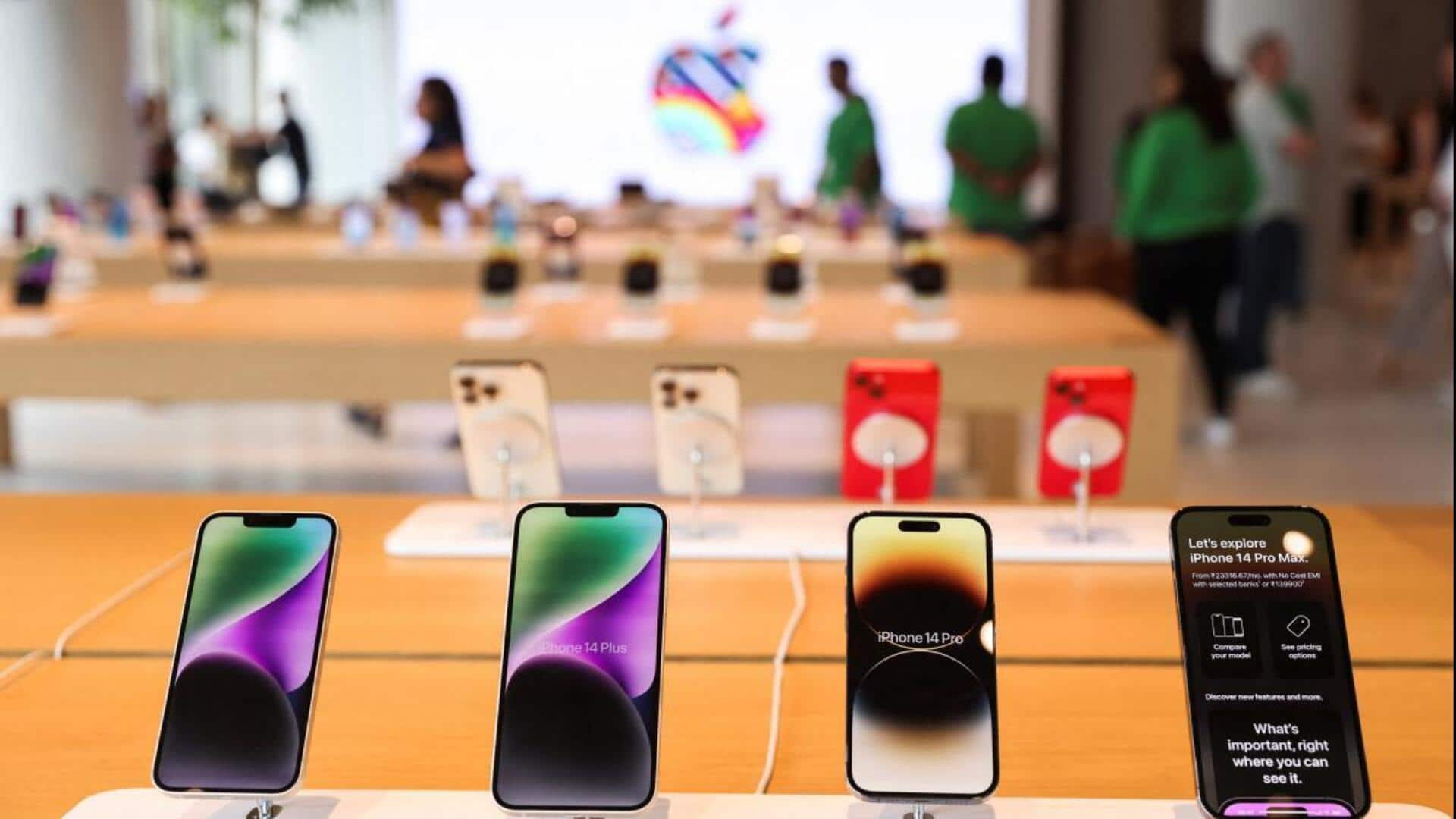
Why China is banning iPhone in government-backed firms
What's the story
China's iPhone ban has reportedly been expanded to more government and state firms. Starting in September with a few government agencies in Beijing and Tianjin, the action has now spread to "at least eight provinces," reported Bloomberg, marking a significant escalation. Over the past two months, more agencies and government-backed firms across China have ordered staff to stop bringing iPhones and other foreign devices to work. Instead, officials are encouraging their employees to use local smartphone brands.
Details
China allegedly concerned about national security
China has taken several measures to decrease economic dependence on foreign brands, allegedly prioritizing national security over investment and trade. While the country is intensifying efforts to diminish reliance on outsiders, it continues to support domestic companies like Shenzhen-based Huawei actively. In September, Chinese officials denied banning iPhones within government agencies but expressed concerns about security incidents related to Apple's phones. They are yet to comment on the latest developments, but a similar response is likely.
Past
Orders issued in these provinces
Over the years, Chinese software and hardware have gradually replaced American products, which has also impacted Apple's market share in the country. Earlier this month, smaller firms and agencies in China's lower-tier cities had independently issued directives, indicating an upcoming broader trend. Per Bloomberg, orders have come from cities across at least eight provinces over the last two months, including prosperous ones like Zhejiang, Guangdong, Jiangsu, Anhui, northern Shanxi, Shandong, Liaoning, and central Hebei.
Impact
What iPhone ban means for Apple
China's iPhone ban poses a major challenge for Apple and other foreign tech companies like Samsung, blocking them from parts of the world's largest mobile market. Apple, in particular, relies on China for the majority of its device production and generates about a fifth of its revenue there. With China's latest action, the iPhone maker might face growth challenges. The United States (US) government has previously labeled the iPhone ban in China as an "inappropriate retaliation."
Information
Scope and enforcement of ban remain unclear
The number of government agencies issuing directives to ban iPhone use and the overall prevalence of these directives remain unclear. However, organizations are expected to vary in strictness of enforcing internal orders, with some prohibiting Apple devices only in the workplace and others completely restricting their use.
Previously
China issued similar directives for PCs in past
Despite deteriorating US-China relations, the American tech giant Apple relies heavily on China for manufacturing and as a market. The ban on devices reflects a long-term initiative to eliminate foreign technology in sensitive areas, aligning with China's goal of self-sufficiency. To recall, in 2022, Beijing mandated central government agencies and state corporations to replace personal computers from foreign companies with domestic alternatives within two years. This marked an aggressive move to eliminate overseas technology from sensitive sectors.
More
Ban doesn't prevent everyday Chinese citizens from using iPhones
Meanwhile, China's reported iPhone ban won't hinder ordinary citizens from purchasing iPhones; it will be limited to government agencies and state-backed firms. However, it underscores an alleged rift between China's bid to dominate the industry and its economic prospects. Companies, including Apple, were already diverting production and investment away from China; the ban might expedite this shift. In August, US Commerce Secretary Gina Raimondo noted that foreign tech firms deemed China "uninvestable" due to the increasingly hostile business environment.